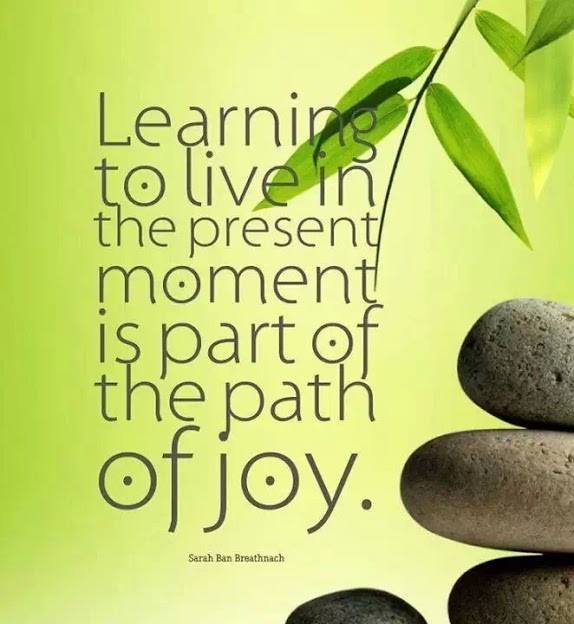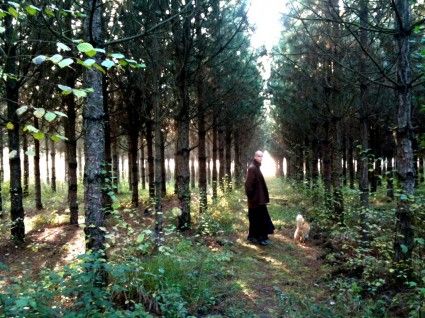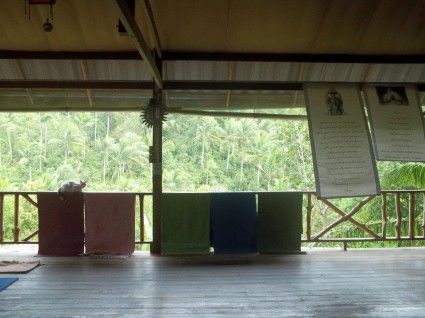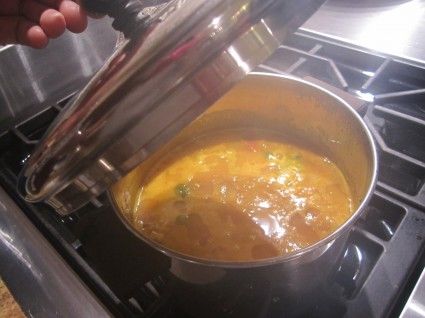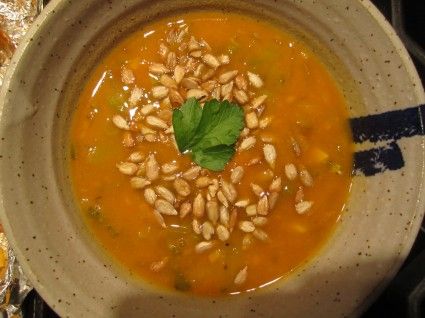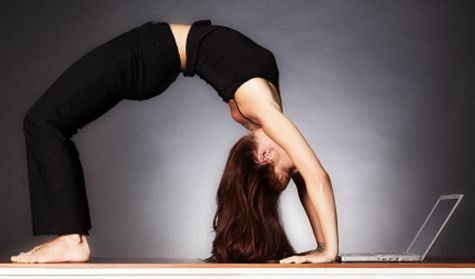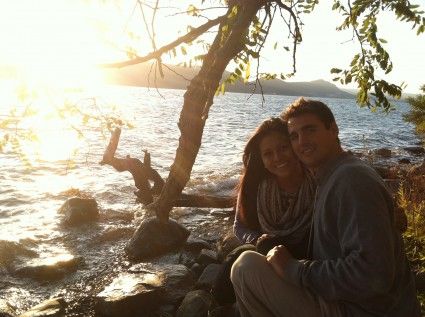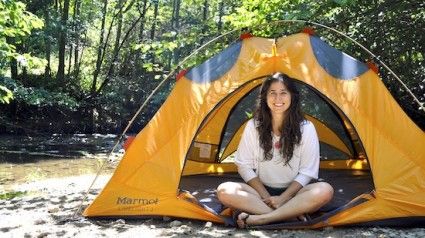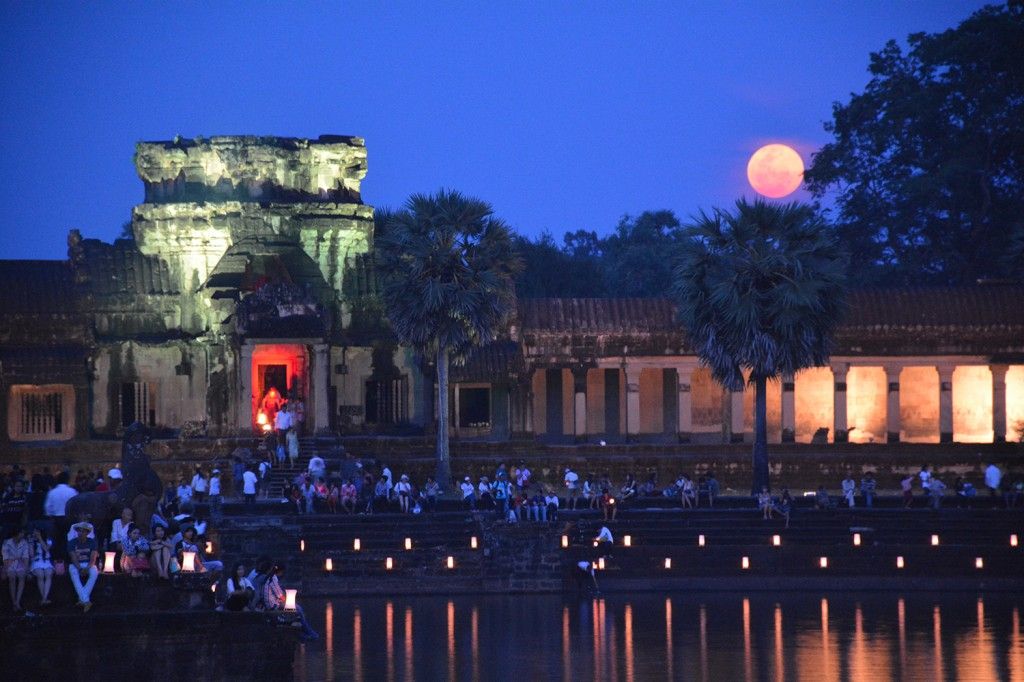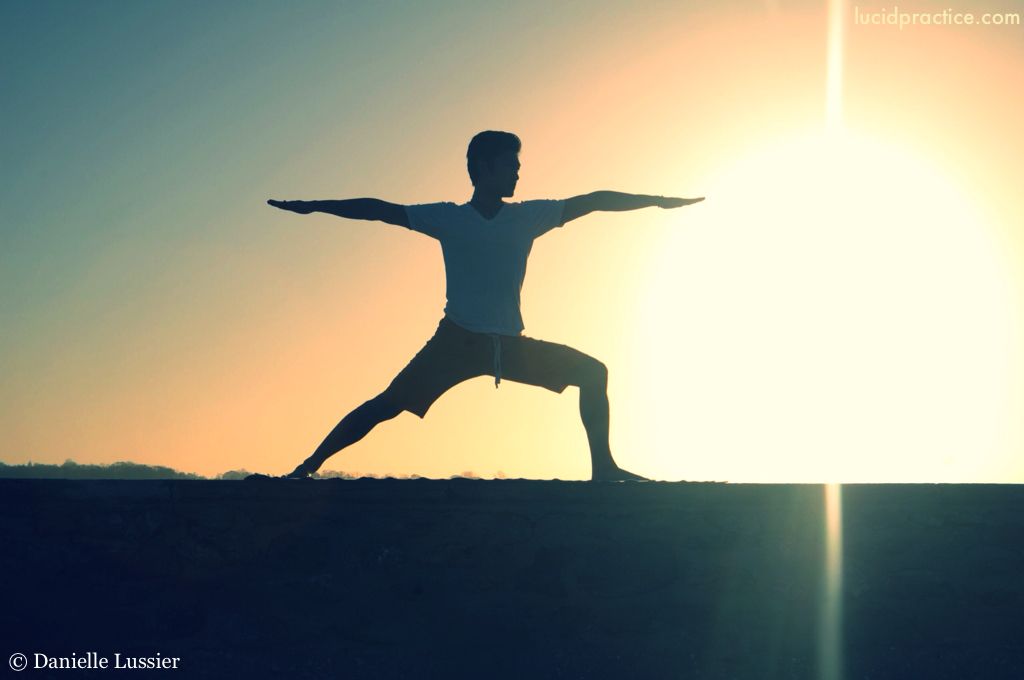What is Flashpacking? 6 Differences Between Flashpackers and Backpackers
What is Flashpacking?
Like backpackers, flashpackers travel the world, often carrying backpacks and usually staying hostels — but there are some key differences.
What defines a flashpacker? What’s the difference between backpacking and flashpacking?
1. Flashpackers are usually entrepreneurial.
Flashpackers seek out business opportunities while traveling whereas the backpacker is more focused on the art of travel itself.
Blake Mycoskie, founder of Tom’s Shoes, is the poster child for this concept. After failing in a few attempts to start businesses, Blake was inspired while traveling Argentina in 2006 when he witnessed hardships of children growing up without shoes. He created a sustainable business that has donated hundreds of thousands of pairs of shoes to less fortunate children across the world.
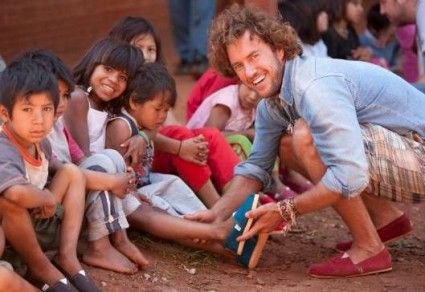
2. Flashpackers usually have a higher budget than backpackers.
Flashpackers usually have passive income coming in while they’re traveling (blog income, drop shipping ecommerce site, owning their own business, etc.)
Backpackers on the other hand, are often “gap year” travelers, traveling in between university and their future career. There are veteran backpackers (different than flashpackers) who might spend 6 months traveling and 6 months working a regular job in their home country to fund their travels.
Backpackers often exhaust their savings accounts each trip whereas flashpackers often end a trip with more in their bank account than they had at the beginning of the trip.
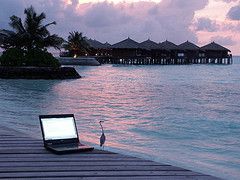
3. Flashpackers are usually more experienced travelers.
Many flashpackers are former backpackers who have figured out a way to make travel a sustainable way of life.
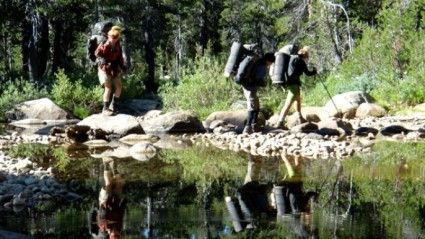
4. Flashpackers tend to be older than backpackers.
Not always the case but generally speaking, the backpackers we’ve met and connected with on social media tend to be taking a “gap year” between university and their career. Flashpackers are the grizzly veterans who have no immediate intention of finding a traditional career (their career is often based upon their travels).
Not this old, but older than the average backpacker. Think mid 30s-40s (flashpackers) v. early to mid 20s (backpackers)
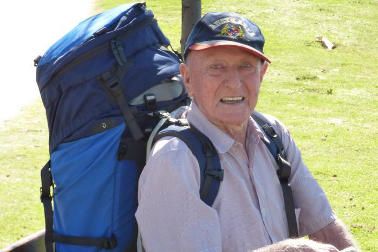
5. Flashpackers consider value over price.
Although they generally stay in hostels or budget hotels, flashpackers might stay in a 5 star hotel one night because it seems like a high value experience (the amount they paid was worth the positive experience of feeling refreshed, well fed, and clean.) The backpacker on the other hand will almost always try to minimize costs in order to extend their trip.
6. Backpackers Disconnect More than Flashpackers
When checking into a hostel, the flashpacker’s first question is: “What’s your WiFi password?” whereas the backpacker is probably asking the attendant, “How can we find a way into Tibet?” Backpackers seek the travel experience whereas flashpackers almost always carry a laptop and stay connected with their blog base and/or social network. WiFi in hostels is the norm today whereas ten years ago that wasn’t the case — the flashpacking lifestyle is one of the causes for this change.
Flashpackers are often equipped with more technological gadgets whole traveling.
A Backpacker examining a map, there’s no WiFi in the desert!
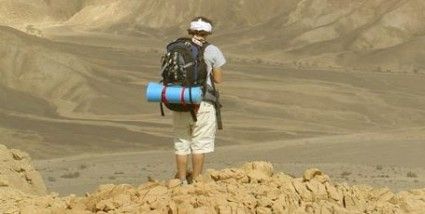
Advantages and Disadvantages
Both flashpacking and backpacking have their advantages and disadvantages. The backpacker’s trip will come to an end at some point unless she has unlimited financial resources whereas the flashpacker’s trips can last forever. The flashpacker’s travels fuel their careers because they’re constantly generating new ideas or because they’re writing about their travels in order to generate income and sustain their lifestyle.
In our eyes, the downside of flashpacking is that the flashpacker might not allow herself to enjoy the subtle beauties of travel and she might struggle to be present while traveling because her mind is constantly focused on earning $ and conjuring up business ideas.
Our Experience
On our most recent trip, Brian and I were backpackers. We had just finished university and we saw the time period as a travel opportunity that we may never again have. We had a defined budget and decided we were going to travel Asia until we drained that budget. We stayed in inexpensive hostels (for the most part) and utilised mass transportation exclusively.
Brian living the flashpacker life? On top floor pool balcony of one of Kuala Lumpur, Malaysia’s nicest hotels overlooking the infamous Petronas Towers
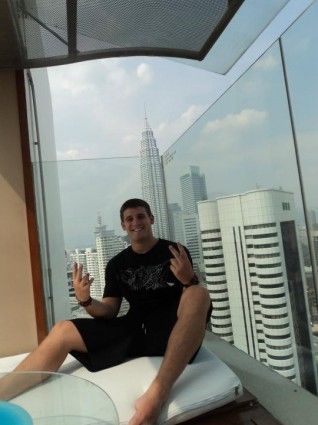
Most days, we traveled with backpacks and often went days or weeks without connecting with the outside world via the Internet.
Me settling into our $12 USD/night hostel in Kuala Lumpur
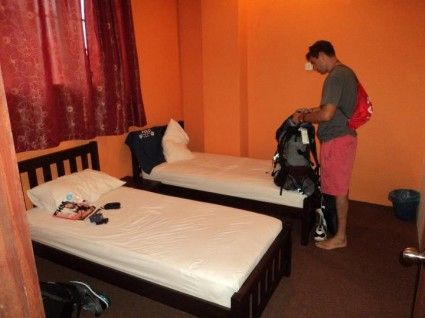
We had the time of our lives but must admit, for the future, the flashpacking model sounds appealing.
When you travel, are you a backpacker or a flashpacker?
What do you see as the key differences?
